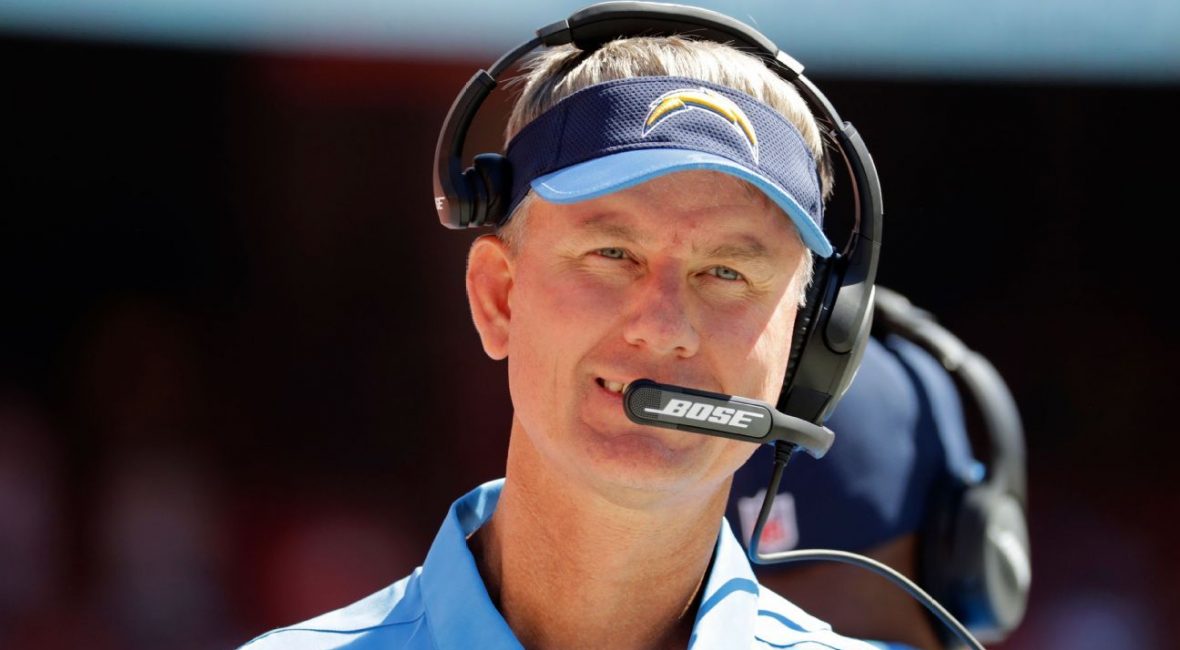Offensive coordinator Mike McCoy begins rebuild of Broncos' playbook

ENGLEWOOD, Colo. — As Mike McCoy prepares to begin his second stint with the Denver Broncos as offensive coordinator, he finds himself in the early stages of a rather large reconstruction.
McCoy will avoid specifics in public and call what comes next “the Denver Broncos offense” or “our offense,” but his vision of the playbook will be flexible. It’s also not what most of the Broncos players might be used to.
“We are as a staff going to change some things,” McCoy said. “I’ve laid the playbook out with the one I’m bringing with me, but then there is going to be some things that different coaches have called differently. There is going to be flexibility. We’re going to give the players some flexibility also.”
Ultimately, McCoy wants the Broncos to be able to adapt week to week and opponent to opponent. That’s a common goal in any offensive huddle, but the Broncos had a pile of issues in 2016 that need attention if the team is going to return to the postseason with a defense that figures to still be among the league’s best.
Last week in Houston, during the buildup to Super Bowl LI, former Broncos coach Gary Kubiak called the offense’s stagnation his “biggest disappointment.” The failings — the Broncos finished 27th in yards per game, 22nd in scoring and 27th in rushing — combined to derail what the team’s players believed before the season was a Super Bowl contender.
“My first call was to Mike McCoy,” Broncos coach Vance Joseph said. “Mike, obviously being an ex-head coach, that was important. Being a successful coordinator in the past, that was more important. I wanted a guy who could build a system toward his players, and Mike was that guy. … That was a big hire for us. Mike was a guy that was being chased by four or five different teams, so we’re happy about having Mike.”
McCoy said this week the work has started, but he isn’t ready to say what the playbook will look like. Broncos coaches have met daily since the new staff gathered for the first time Jan. 30, and the group will continue to meet until they attend the scouting combine in Indianapolis at the end of the month.
The coaches have spent mornings on the construction of the playbook and afternoons in personnel evaluation. One thing is already clear: When players arrive in April for the offseason program, including quarterbacks Trevor Siemian and Paxton Lynch, they had better be prepared for homework.
“I will say this. … We’re going to install our system and go from there,” McCoy said. “There is going to be a lot of changes. They are going to have to leave this building when they get here in the offseason program and take their work home. That’s not just the two quarterbacks, but it is everybody. I think for every player it is going to be a challenge for them coming into a new system.”
McCoy has also said he’ll adapt to the Broncos players, especially the quarterbacks, after he sees them work on the field and talks things over in the meeting room. There is plenty of evidence showing McCoy’s adaptive nature as a playcaller. He worked with Kyle Orton, Tim Tebow and Peyton Manning in his previous stint with the Broncos from 2009 to 2012.
In those years, the Broncos ran offenses as varied as a version of the Patriots’ scheme with Tom Brady, to an option-based look with Tebow, to the no-huddle work of Manning.
“We have put things in place for players to succeed, for us to score points and for us to win games,” McCoy said. “But it’s going to be some work to get where we all want to go.”




